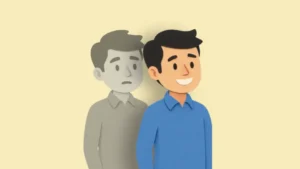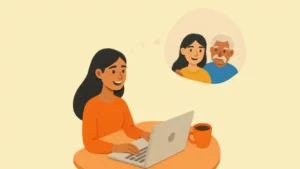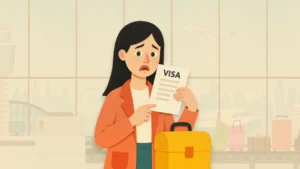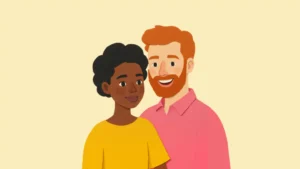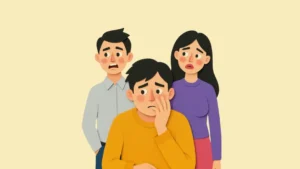What does Depression Feel Like?
Depression isn’t just feeling sad—it’s like carrying a heavy weight that no one else can see. It can make even the simplest tasks feel impossible, like getting out of bed or answering a text. A sense of hopelessness or meaninglessness can settle in, making everything feel empty or without purpose. You might feel numb, exhausted, or like you’re just going through the motions. It’s not about “snapping out of it”; it’s a deep, lingering fog that makes life feel colourless, often triggered or worsened by experiences like family pressure, divorce, or a breakup.
How and Where Does It Show Up?
Depression doesn’t just affect your mood—it can show up in your body, your thoughts, and your relationships. It can drain energy, disrupt sleep, and cause physical aches or tension. Thoughts may turn self-critical, making it hard to believe in yourself or see a way forward. Relationships can suffer as depression creates distance, making it difficult to connect, express emotions, or ask for support. Family expectations can add to the pressure, reinforcing feelings of being stuck or not good enough. Past losses, such as a breakup or divorce, can deepen the sense of disconnection, making it feel as though nothing will change.
What Are Our Approaches? How Can Therapy Help?
At Talking Distance, we understand how isolating and overwhelming depression can feel, and we’re here to walk alongside you. Therapy isn’t about telling you to “think positive” or “just try harder.” It’s about creating a safe space where you can explore what’s going on without judgment. Through structured, evidence-based techniques, therapy can help you understand the patterns fueling your depression, shift the way you respond to difficult thoughts and emotions, and reconnect with what matters to you. It’s not about fixing you—it’s about finding relief, building resilience, and rediscovering meaning and joy at your own pace.
Self-Assessment - Do I have Depression?
The Assessment is loading...
References
- Goldberg, D. P., & Williams, P. (1988). A User’s Guide to the General Health Questionnaire. Windsor, UK: NFER-Nelson.
- Snaith, R. P., Hamilton, M., Morley, S., Humayan, A., Hargreaves, D., & Trigwell, P. (1995). A scale for the assessment of hedonic tone: The Snaith-Hamilton Pleasure Scale. The British Journal of Psychiatry, 167(1), 99–103.
FAQs: Your Therapy Questions Answered
Yes, it can. While depression can feel all-consuming, therapy provides tools and support to help you manage symptoms and find hope again. It’s not a quick fix, but it’s a step toward feeling lighter.
That’s okay. Therapy at Talking Distance moves at your pace. You won’t be pushed to share more than you’re ready for. Sometimes, just being in a supportive space can be healing.
Not necessarily. Therapy can be effective on its own, but if medication is something you’re open to, we can discuss it as part of a holistic approach.
It depends on your unique journey. Some people notice small shifts early on, while others take longer to feel significant change. There’s no “right” timeline—just the one that works for you.
![Logo [with tagline]-38](https://talkingdistance.com/wp-content/uploads/2025/03/Logo-with-tagline-38-300x138.webp)
